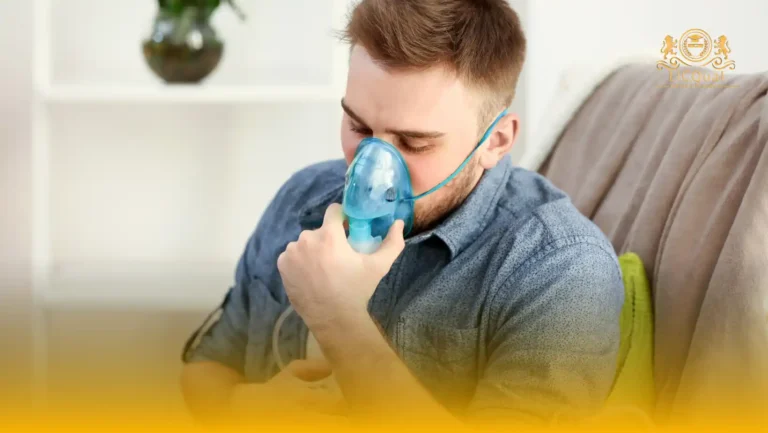The LICQual Level 7 Postgraduate Diploma in Gerontology and Geriatric Care Management is an advanced professional qualification designed for experienced healthcare practitioners, managers, and specialists who wish to develop expertise in the care and management of older adults. This programme equips learners with the knowledge, leadership skills, and practical strategies required to deliver high-quality geriatric care, implement person-centred practices, and manage complex healthcare services for ageing populations.
This qualification is not intended for fresh candidates; it is specifically aimed at professionals with prior experience in healthcare, gerontology, nursing, or related sectors who are seeking to enhance their career prospects, broaden their knowledge, and strengthen their Continuing Professional Development (CPD). Learners will explore critical topics including age-related healthcare management, chronic disease management, ethical decision-making, leadership in geriatric care, and regulatory compliance, applying theoretical knowledge to real-world scenarios in care homes, hospitals, and community healthcare settings.
Centres delivering the LICQual Level 7 Postgraduate Diploma in Gerontology and Geriatric Care Management must ensure high-quality learning by providing competent and qualified staff, comprehensive learning resources, and all necessary facilities and tools to support learner success. This ensures that learners have access to a professional, structured, and supportive environment, enabling them to achieve the highest standards of learning and practical application.
Upon completion of this postgraduate diploma, learners will possess the leadership, clinical, and management capabilities required to optimize care for older adults, ensure regulatory compliance, and drive innovation and excellence in geriatric healthcare services.
Course Overview
Qualification Title
LICQual Level 7 Postgraduate Diploma in Gerontology and Geriatric Care Management
Total Units
6
Total Credits
120
GLH
600
Qualification #
LICQ2200815
Qualification Specification
To enroll in the LICQual Level 7 Postgraduate Diploma in Gerontology and Geriatric Care Management , applicants must meet the following criteria:
|
Qualification# |
Unit Title |
Credits |
GLH |
|---|---|---|---|
|
LICQ2200815-1 |
Principles of Gerontology and Ageing |
20 |
100 |
|
LICQ2200815-2 |
Geriatric Care Planning and Management |
20 |
100 |
|
LICQ2200815-3 |
Leadership and Governance in Geriatric Care |
20 |
100 |
|
LICQ2200815-4 |
Quality Assurance and Risk Management in Elderly Care |
20 |
100 |
|
LICQ2200815-5 |
Healthcare Policy, Law, and Ethics in Geriatric Care |
20 |
100 |
|
LICQ2200815-6 |
Strategic Innovation and Research in Gerontology |
20 |
100 |
By the end of this course, learners will be able to:
Unit 1: Principles of Gerontology and Ageing
By the end of this unit, learners will be able to:
- Critically evaluate the biological, psychological, and social aspects of ageing.
- Analyse age-related changes and their impact on health, wellbeing, and quality of life.
- Examine contemporary theories and research in gerontology to inform professional practice.
Unit 2: Geriatric Care Planning and Management
By the end of this unit, learners will be able to:
- Develop person-centred care plans tailored to older adults’ needs.
- Implement strategies for managing chronic conditions and complex care requirements.
- Evaluate models of care delivery in nursing homes, hospitals, and community settings to optimise outcomes.
Unit 3: Leadership and Governance in Geriatric Care
By the end of this unit, learners will be able to:
- Analyse leadership models and governance frameworks relevant to geriatric care management.
- Develop strategies for leading multidisciplinary teams effectively in elderly care settings.
- Apply ethical decision-making and regulatory compliance to organisational and clinical practice.
Unit 4: Quality Assurance and Risk Management in Elderly Care
By the end of this unit, learners will be able to:
- Design and implement quality assurance systems for geriatric care services.
- Assess and manage risks to ensure safety, compliance, and high standards of care.
- Apply continuous improvement techniques to enhance service delivery and patient outcomes.
Unit 5: Healthcare Policy, Law, and Ethics in Geriatric Care
By the end of this unit, learners will be able to:
- Analyse healthcare policies, legislation, and ethical frameworks affecting older adults.
- Develop policies and procedures to ensure regulatory compliance and protection of residents.
- Evaluate the impact of policy and legal frameworks on operational and clinical practice in geriatric care.
Unit 6: Strategic Innovation and Research in Gerontology
By the end of this unit, learners will be able to:
- Explore innovations in geriatric care, including technology, digital health, and service delivery models.
- Develop and conduct research projects using qualitative and quantitative methods relevant to gerontology.
- Apply evidence-based strategies to improve care quality, organisational performance, and service innovation.
This advanced qualification is designed for experienced healthcare professionals, managers, and specialists who wish to develop expertise in gerontology and geriatric care management. Learners who should enrol include:
- Healthcare Managers and Administrators seeking to lead and optimise elderly care services.
- Nursing Home Directors and Coordinators aiming to enhance operational and clinical management of care facilities.
- Senior Nurses and Practitioners working in geriatric care, seeking advanced knowledge in care planning and management.
- Healthcare Policy Makers and Strategists involved in developing or implementing elderly care policies.
- Experienced Practitioners committed to Continuing Professional Development (CPD) and professional growth in gerontology.
- Aspiring Leaders in Geriatric Care looking to take on strategic, executive, or specialist roles in healthcare organisations.
By enrolling in this programme, learners will gain the skills, knowledge, and professional recognition required to manage care for older adults effectively, implement best practices, and drive innovation and excellence in geriatric healthcare services.
Centres delivering the LICQual Level 7 Postgraduate Diploma in Gerontology and Geriatric Care Management must uphold high-quality standards to ensure learners receive exceptional training and achieve their learning goals. To deliver this programme effectively, centres are required to:
- Qualified and Experienced Staff: Employ competent and qualified trainers with expertise in gerontology, geriatric care management, and postgraduate-level teaching. Staff should provide mentorship, guidance, and practical support to learners.
- Comprehensive Learning Resources: Provide learners with access to up-to-date textbooks, digital learning materials, research articles, case studies, and relevant software tools to support advanced study and practical application.
- Modern Facilities and Technology: Ensure learners have access to suitable classrooms, digital platforms, and online resources necessary for workshops, practical exercises, and assessments.
- Robust Assessment and Feedback Systems: Implement effective assessment procedures, including formative and summative evaluations, to monitor learner progress and provide constructive feedback.
- Support for Continuing Professional Development (CPD): Encourage learners to engage in ongoing CPD activities and provide guidance on applying learning outcomes in professional practice.
- Professional and Safe Learning Environment: Create an inclusive, supportive, and professional environment that fosters collaboration, effective learning, and ethical practice in gerontology and geriatric care management.
By meeting these requirements, centres ensure that learners achieve the programmer’s learning outcomes, gain advanced skills in geriatric care management, and obtain a recognized postgraduate qualification that enhances their professional careers.
Assessment and Verification
All units within this qualification are subject to internal assessment by the approved centre and external verification by LICQual. The qualification follows a criterion-referenced assessment approach, ensuring that learners meet all specified learning outcomes.
To achieve a ‘Pass’ in any unit, learners must provide valid, sufficient, and authentic evidence demonstrating their attainment of all learning outcomes and compliance with the prescribed assessment criteria. The Assessor is responsible for evaluating the evidence and determining whether the learner has successfully met the required standards.
Assessors must maintain a clear and comprehensive audit trail, documenting the basis for their assessment decisions to ensure transparency, consistency, and compliance with quality assurance requirements.







